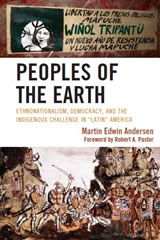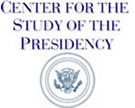To understand such a subtle quip, we need to go back in time to another presidency some fifty years ago and another reign some 2000 years ago. I am referring to Kennedy’s presidency and Caligula’s reign. Those two regimes lasted only a few years, but Dickens’ quip seems to apply to both and it may well turn out to apply to Trump’s presidency too. Let’s see.
We need to go back to April 1961, when over fourteen hundred members of the Cuban Expeditionary Forces landed at the Bay of Pigs, in Cuba. Their mission was to overthrow the communist regime of Cuban President Fidel Castro. The mission was a failure. Almost immediately it became known that the American Central Intelligence Agency (CIA) trained the so called "freedom fighters." John F. Kennedy had approved the mission.
President Kennedy soon after the failure spoke at a meeting of the American Association of Newspaper Editors and assumed all responsibility and blame. But soon after his staff began leaking information to reporters, blaming the failure on anyone except the administration. President Kennedy was quoted as saying, "How could I have been so stupid?" to trust the groups who were advising him, such as the CIA and the Joint Chiefs of Staff (JCS). Even more damning to the CIA was a reputed quote by President Kennedy that he wanted to "splinter the CIA into a thousand pieces and scatter it into the winds."
Two and a half years after Kennedy supposedly uttered these words, he was assassinated along a motorcade route in Dallas, Texas. The official government story is that a lone gunman, Lee Harvey Oswald, killed Kennedy. A rather popular conspiracy theory, on the other hand, claims that because Kennedy was planning on dismantling the intelligence infrastructure, the CIA had Kennedy killed, and then later covered up the assassination plot. Now, it is not inconceivable that splintering the CIA into a thousand pieces might cause some in the CIA to wonder whether Kennedy was good for the CIA in particular and the entire country in general. And so the conspiracy theory remains alive.
Perceiving the President as a security threat would rationalize an assassination in Machiavellian “real politik” geo-political terms. Let us keep in mind that in our turbulent sad times of when the end seems to justify any means and any agenda, assassinations (as well as assassination of the truth via propaganda) may be part of those means to be employed to gain and retain power. That’s what Machiavelli’s Prince is all about. This is apparent in any authoritarian government around the world, including those who deny that they use those nefarious means. Let’s not be naïve; just look around.
But to go back to Kennedy, given Kennedy's affinity for covert operations, the next question is whether Kennedy's attitudes towards intelligence changed after the failure of the Bay of Pigs invasion. Was Kennedy's confidence in the CIA undermined? It is historically true that, because of his feeling that he needed a better way of gaining intelligence, Kennedy instigated a review of the intelligence system. It is also true that President Kennedy, and his brother Attorney General Robert Kennedy had a habit of not working through the proper channels when it came to communicating with the CIA, and they did not take "I do not know" for an answer. In any case, after his review of the intelligence community, the President began to rely more closely than before on his National Security Advisor to provide him with information. This resulted in more accurate information and arguably helped prevent further fiascoes like the Bay of Pigs.
History may eventually render a final verdict on this popular conspiracy theory on the CIA’s role in Kennedy’s assassination. For the moment we have the official verdict of the government’s investigation. What concerns us here is the comparison with the present situation. To be sure, there are some parallels. Let’s analyze them.
President-elect Trump has been served with intelligence classified reports (which included the CIA intelligence agency) on Russia’s hacking and active interference in the US presidential elections. Mr. Trump has refused, so far, to acknowledge what the report claims, and talks about a fat man in New Jersey sitting on his couch and hacking away at his heart’s content; which of course sounds slightly deranged and more like a rationalization.
Moreover, the intelligence community has furnished Trump with some information which has been circulating for some time now. The information reveals some salacious news generated during his trip to Moscow in 2013 where allegedly Trump was compromised. Here again Trump and all his campaign staff have vehemently pushed back claiming on those rumors claiming that they are pure gossip and slander and the CIA should not have made them public. Actually it was not the CIA who made them public but CNN. Here the denial that followed the allegations of groping by a bunch of women a few months ago, jump to mind.
To place the above in a better context we now need to go back 2000 years when Emperor Caligula ruled the Roman Empire. Some scholars have called his five year rule the beginning of the end for the Empire. Why is that? Well, consider this: he was a man that on a personal psychological level, since his youth displayed psychopathic, extremely narcissistic, paranoid, dictatorial tendencies with a streak of vengefulness and sadism. He seemed to enjoy to disrespect and insult people, to see them hurt and humiliated, especially those who disagreed with him or opposed him in any way. In today’s parlance we would say that he had a thin skin and a fat ego. For example, he would invite a Senator and his wife to dinner; during the event he would invite the wife of the senator to follow him to his bedroom, have sex with her, and then return her to her humiliated husband sitting at the table. In modern Italian parlance he had in effect made a “cornuto” of the senator, a fellow senator of his horse.
He named his horse a senator to serve notice that he would tolerate no opposition from any body, not even from an august political democratic body such as the Senate. In fact, he had contempt for the traditional values of Rome. He took the Roman army to Normandy, supposedly to invade Britain, and had his generals dismount from their horses and collect shells on the beach for his shell collection. One can blame all this to the excesses of absolute power but here was something different, deranged, practically psychotic. He would tell his Praetorian guards to kneel before him not so much because he was emperor, but because he was an immortal god. He insulted and blamed them of incompetence on a daily basis. One was called a girl by him for having a soft voice.
He loved spectacles and games in the Coliseum dressed in extravagant clothes and rode around Rome showing off in a chariot of six horses. He did all those things all the more when he realized that he had become the toast of the people who enjoyed seeing the elites of Rome humiliated. That’s what an emperor should do. He, a member of the aristocracy, had managed to transform himself into a populist. The Republic was fast becoming an autocracy; something rather familiar in modern times. Think of Russia, for example. If all this is sounding familiar, it is because it is. All one has to do is transfer the six horse chariot to the Trump private plane and think of Putin, Trump’s friend, as the richest man in Russia.
We know how the story of Caligula ends: as he was walking out of the Coliseum, his own praetorian guards, those who had been called girls, incompetent and stupid, killed him. In effect they decided to prove their incompetence and the fact that he, Caligula, was just another mortal man. And of course, it was all justified as necessary for the security of the empire which could not be left in the hands of a madman.
But there is another lesson, a moral of sorts, to be derived from those three stories and it is this: it is not very wise to insult and treat with contempt the very people in charge of security, that of the state or one’s own personal security, those who are sworn to come to your defense. If one calls them incompetent, they will prove their incompetence and leave you defenseless to suddenly find out that all men are mortal and that as Socrates put it: “the issue is not whether we live or die, but whether corruption, which is faster than death, catched up with us, because once she has caught up, she may not relent her grasp.”
**EMANUEL L. PAPARELLA, PH.D.: Professor Paparella has earned a Ph.D. in Italian Humanism, with a dissertation on the philosopher of history Giambattista Vico, from Yale University. He is a scholar interested in current relevant philosophical, political and cultural issues; the author of numerous essays and books on the EU cultural identity among which A New Europe in search of its Soul, and Europa: An Idea and a Journey. Presently he teaches philosophy and humanities at Barry University, Miami, Florida. He is a prolific writer and has written hundreds of essays for both traditional academic and on-line magazines among which Metanexus and Ovi. One of his current works in progress is a book dealing with the issue of cultural identity within the phenomenon of “the neo-immigrant” exhibited by an international global economy strong on positivism and utilitarianism and weak on humanism and ideals.




